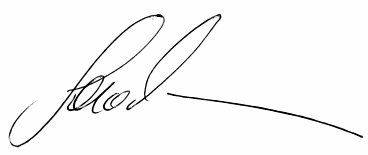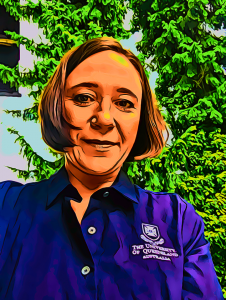139 Letter from Sara Dolnicar
Dear brilliant women tourism researchers of the future,
I cannot believe it has already been 25 years! I have been a researcher for 25 years. And I am still loving every minute of it. Which brings me to the first observation I would like to share with you: ask yourself if research is something you are genuinely passionate about. Then make sure you answer honestly. If you are not really fired up about research, you may be better off pursuing another career. Why? Because the academic workplace has become very competitive. If you end up being a replaceable academic, you may have a tough 40 years of work ahead of you. If, however, you genuinely love research – if you think about it when you are jogging, swimming, walking, showering; if you enjoy the process of creating new ideas; if you can’t wait to go to work in the morning – that’s when you should most definitely pursue a career as a researcher, no matter how many people tell you that the career prospects are bad.
If you do end up deciding a research career is for you, here are a few rules I have developed for myself. They all contribute to two higher-level aims: (1) building and protecting your professional reputation, and (2) not wasting time. Your professional reputation and your time are the two most precious assets.
Have principles and never break them. As the academic workplace becomes more competitive, some researchers are tempted to cut corners. For example, they may be satisfied with making only a minimal contribution to a paper they author, or they may not implement a project exactly the way the human ethics committee approved it. Never do that. No matter how high the pressure. Always know what’s right and what’s wrong. Choose to never do the wrong thing. Have a moral compass and use it. You have a long career ahead of you. Having a reputation as being principled will open doors everywhere. If your behaviour is driven by short-term incentives, the doors leading to the most exciting opportunities will stay closed.
Have clear priorities. In the academic workplace you will get dozens of requests and invitations to do something every week. Don’t give into flattery (“You are the leading expert in…”) or the illusion that nobody else can do the job. Think carefully about whether you agree to do something or not. Everything you commit to requires you to take time away from something else. If you are not careful, you can end up being busy all day doing things that do not further your career, are not appreciated and, ultimately, you do not enjoy.
Be a problem solver not a problem finder. Some academics are proud to identify and then extensively elaborate problems. It is important to identify problems. But that’s only the starting point. The true achievement is solving them. Deliver solutions, not problems.
Be a doer not a talker. Get stuff done. Don’t talk about it. Time is too precious.
Anything you choose to do, do it with 150% effort and dedication. Investing only 50% effort and dedication or even 80% reduces your chances of success. Imagine writing a grant application: if you are unsuccessful, your 50% or 80% effort is 100% wasted. To me it always made sense to invest 150% time and effort and have a real hot chance of succeeding.
Always give more than you get. Collaboration is one of the most enjoyable aspects of research. I have been fortunate to have research partnerships that have spanned decades. And they just keep getting better. The key to great collaborations is that you always give more than you get, that you are reliable, that you deliver work rather than excuses for unfinished work. Even if you give more than you get in every single collaborative project, overall, you will find yourself gaining more than you ever could have given from your career’s worth of collaborations.
Stay out of gossip and university politics. Where there are humans, there is gossip. Academia seems to be a particularly fertile ground for gossip and organisational politics. Both are unproductive. Both are emotionally draining. Both waste your time and never lead to a positive outcome. Stay out of it.
Do not stand by. If you witness something that is not right: speak up. Act. If you do not, you accept it as being OK; you endorse it. Wrong behaviour is not only a matter for the victim and the perpetrator. Bystanders have a responsibility.
Support and empower women. Reading opinion pieces from women scholars who have been in business for twice as long as I have, it is remarkable to see how little has changed in terms of gender equality in academia. But we are not victims. Our future does not depend on someone else’s actions. We can take action, each one of us. We can create change by supporting and empowering women around us. We all grow stronger as a result.
Imagine yourself on your death bed. This may sound like an unreasonably morbid piece of advice, especially for tourism researchers in their early career stages. I have no intention of dying anytime soon myself, but I do sometimes ask myself how I might feel about my life as I lie on my death bed. It’s a good sanity check. It made me change my research program from being focused on publishing to being focused on creating change that matters. Of course, it will be my family first and foremost I will think about as I die. But if there happens to be a work flashback in the process, I would prefer it not to be a h-index flashback, but rather a sense of contentedness that comes with having made a difference that matters; a real difference for people, for the world, no matter how small.
I suspect this was more than you bargained for when you started reading this letter. I wish you lots of fun with your tourism research, for many, many years to come. And maybe, towards the end of your career, you might find it interesting to write a letter to the women tourism researchers of the future yourself. I wonder what you will want to share with them.
Best wishes

Sara Dolnicar
The University of Queensland, Australia


